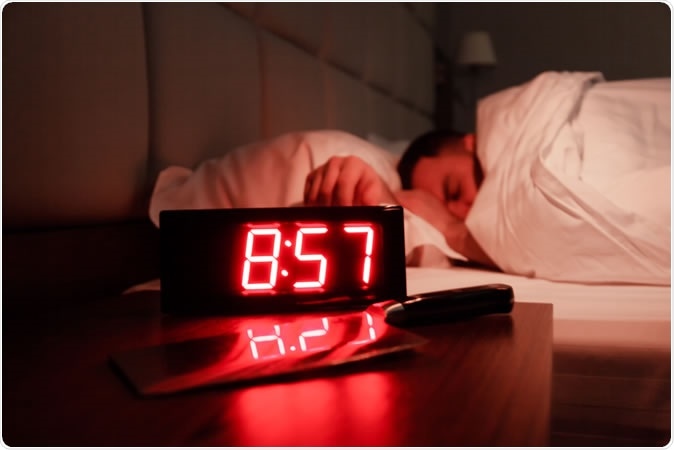According to the research by scientists at the Huazhong University of Science and Technology, people who take long naps during the day of about 90 minutes were 25 percent at a higher risk of having a stroke than those who took regular naps of one to 30 minutes. Further, people who had nine hours or more of sleep at night increase their stroke risk by 85 percent.
The researchers analyzed the sleep patterns of 31,750 people in China. The participants’ average age was 62, and the study controlled for other stroke factors, including drinking, smoking, and history of stroke and other cardiovascular conditions.
They answered questions about napping habits and sleeping patterns, and the researchers followed them for six years. Of the participants, 8 percent took naps that lasted longer than 90 minutes, and 24 percent said they sleep for at least nine hours every night.

Image Credit: MikroKon / Shutterstock
Higher risk for stroke
Over the study period, the researchers took note that 1,557 participants had a stroke. The people who slept for nine or more hours were 23 percent at a higher risk of having a stroke than those who slept just 7 to 8 hours each night and those who had frequent midday nap longer than 90 minutes had a 25 percent heightened risk.
“Long sleep duration, long midday napping, and poor sleep quality were independently and jointly associated with higher risks of incident stroke. Persistently long sleep duration or switch from average to long sleep duration increased the risk of stroke,” the researchers concluded in the paper.
For those who had more than nine hours of sleep at night and had a midday nap longer than 90 minutes, jumped their risk to a staggering 85 percent. The link between sleep duration and stroke becomes more evident with age, or develop a condition such as diabetes, obesity, hypertension, and hyperlipidemia.
The researchers also asked the respondents about their sleep quality or how well they sleep at night. The participants who reported having poor sleep quality had a 29 percent increased risk of having a stroke later than those who reported having good sleep quality.
Of those who nap longer, 1 percent of cases per person-years later had a stroke than to 0.7 percent of the moderate nappers. Lastly, the team found that compared with persistently sleeping about 7 to 9 hours a night, those who persistently slept more than 9 hours or switched from 7 to 9 hours to more than 9 hours a night had a higher risk of total stroke.
A stroke occurs when the blood supply to the brain becomes minimal or gone, resulting in brain cell death. It is a life-threatening condition that kills about 5 million people each year, with another 5 billion with a permanent disability. The major risk factor of stroke is hypertension, which contributes to more than 12.7 million strokes across the globe.
Limitations of the study
The researchers acknowledge that the study has many limitations and further research is necessary. First off, the study used the observational method and can’t prove causality. Also, the research didn’t take into consideration for sleep disorders that might have influenced the results. Lastly, the participants gave self-reported data.
"More research is needed to understand how taking long naps and sleeping longer hours at night may be tied to an increased risk of stroke, but previous studies have shown that long nappers and sleepers have unfavorable changes in their cholesterol levels and increased waist circumferences, both of which are risk factors for stroke. In addition, long napping and sleeping may suggest an overall inactive lifestyle, which is also related to increased risk of stroke,” Dr. Xiaomin Zhang, study lead author, said.
Lastly, the study covered older populations and not younger ones. Hence, future studies should include younger generations and how their sleep impacted stroke risk.
The research was published in the journal Neurology.
Journal reference:
Sleep duration, midday napping, and sleep quality and incident stroke Lue Zhou, Kuai Yu, Liangle Yang, Hao Wang, Yang Xiao, Gaokun Qiu, Xuezhen Liu, Yu Yuan, Yansen Bai, Xiulou Li, Handong Yang, Meian He, Chongjian Wang, Tangchun Wu, Xiaomin Zhang Neurology Dec 2019, 10.1212/WNL.0000000000008739; DOI: 10.1212/WNL.0000000000008739, https://n.neurology.org/content/early/2019/12/11/WNL.0000000000008739